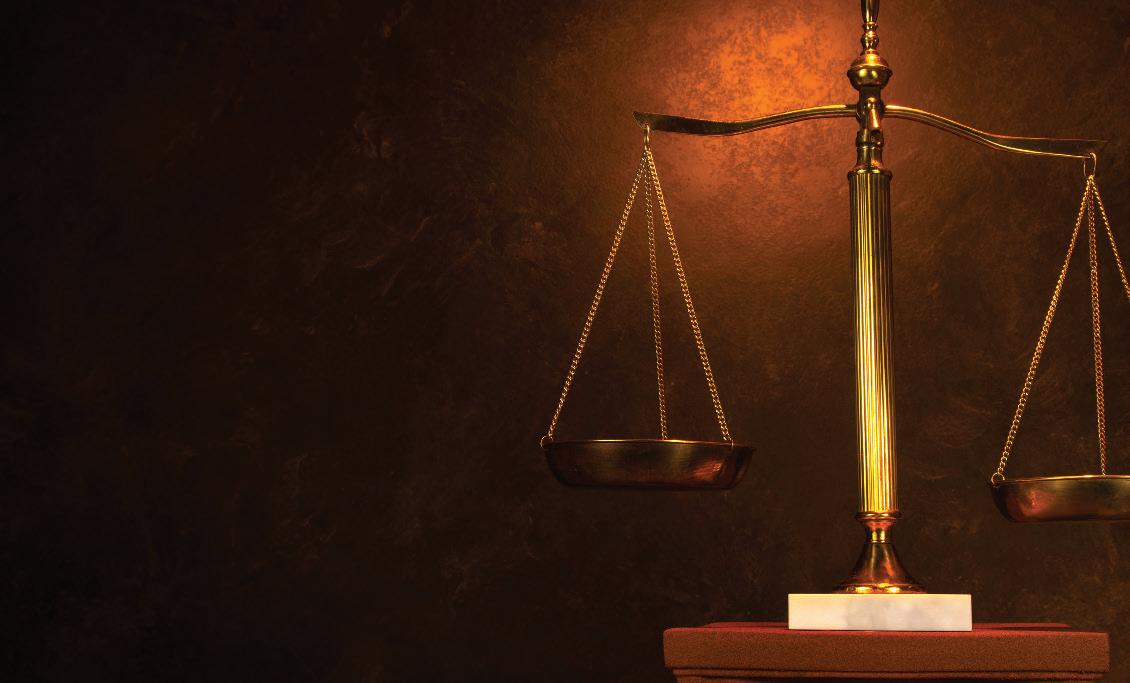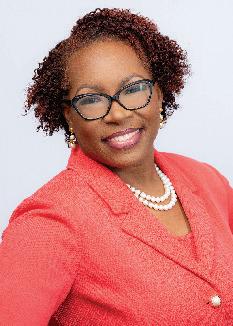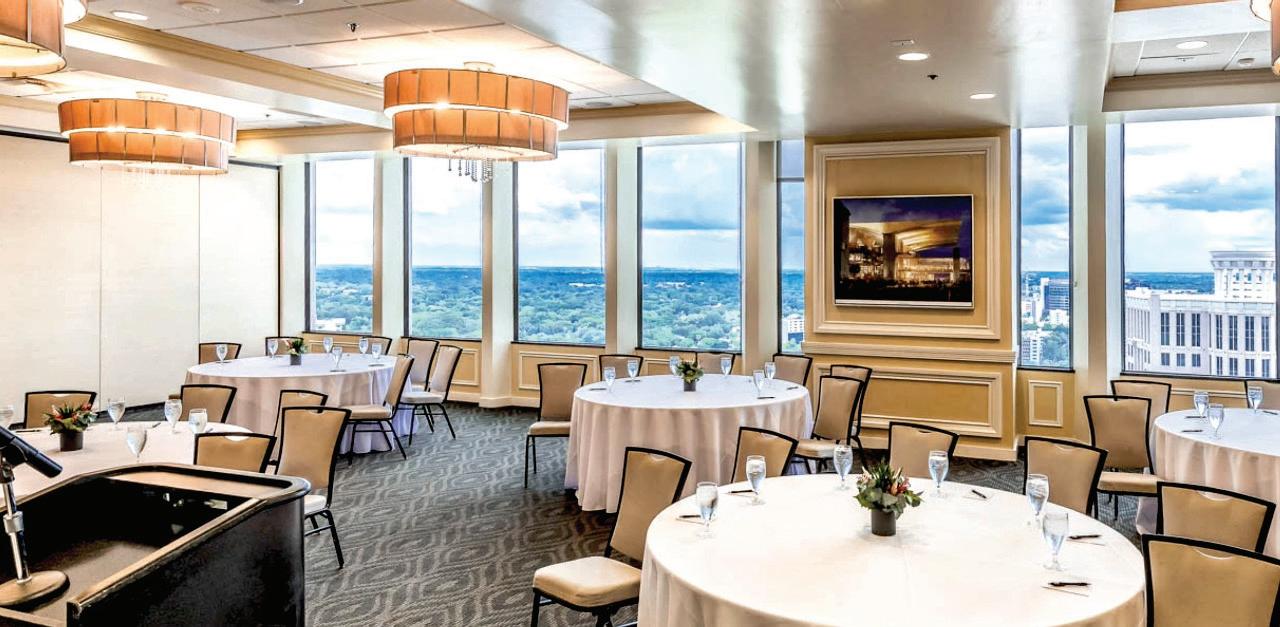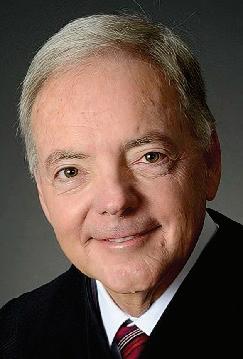
6 minute read
Clerk’sCorner Clerk’s Office Making a Difference for Our Community
Ilike to describe myself as a public servant, because I love giving back to our community to make a difference in the lives of the people I serve. That’s why I am excited to share with you once again this year what my office has been doing to serve our community outside of the normal day to day business. Recently the Clerk’s Office worked on a service project at Second Harvest Food Bank to help feed children and families this summer. My deputy clerks volunteered to help sort through food that is distributed to people in need across Central Florida. Second Harvest Food Bank distributes donated food to 625 feeding partners in seven Central Florida counties including food pantries, soup kitchens, shelters, senior centers, daycares, and more.
The community was also able to connect recently with us for one of our legal forums called “Legal Matters” that assist people with free legal assistance. We bring together county and state officials, lawyers, and judges for these virtual forums. I was excited to provide a forum recently on Child Support and Family Law. These legal forums give people insight into our office’s services, tips from the bench, legal information from attorneys, and an interactive question and answer session.
My office also recently kicked off our 2023 Heart of Florida United Way fundraising campaign. This year we hope to continue the trend of once again increasing the amount of money we raise that goes towards the overall Orange County campaign. Last year through the generosity of our staff, we were able to raise more than $22,000.
While there are dozens of organizations that receive support from United Way, my office’s outreach priorities are mental health, domestic violence, and access to justice which directly relate to the work we do.
We could never make an impact like this with all these initiatives without the hard work and dedication of our employees who either volunteer, give pledges or help with events. I am proud of everything our employees, their families, and volunteers work to accomplish to make a difference and serve our community.
The Honorable Tiffany Moore Russell, Esq., Orange County Clerk of Courts, has been a member of the OCBA since 2004.

Legal Aid Society Of The Orange County Bar Association
June 6, 2023
VIRTUAL and IN-PERSON
Professionalism in Family Law
Ritcy Canelon, Family Law Attorney
CLE Pending Join Zoom Meeting https://us02web.zoom.us/j/85095168861?pwd=RGhSZDNJSTNWQktuSTIreDJ0TS9MUT09
Adolescent Advocacy
Maylynn Jones & Kira Hartman, Case Coordinators
June 20, 2023
VIRTUAL ONLY
CLE Pending Join Zoom Meeting https://us02web.zoom.us/j/84236814002?pwd=VlpMWmZZVWMzV2xCTXhVdklRTzdoQT09
The Use of Technology in Preparing Advanced Directives
Noon –1:30 p.m.
In-Person Location: Orange County Bar Association 880 N Orange Ave, Orlando, FL 32801 | Palm Room
Virtual Sessions: Prerecorded and on our Website: www.legalaidocba.org. Alltrainingswillbeavailableto viewonourwebsite.
Questions: info@legalaidocba.org www.legalaidocba.org
July 11, 2023
VIRTUAL and IN-PERSON
Pro bono Attorney Matthew H. Rosenthal, Esq. & Larri Thatcher, Deputy Director
CLE Pending Join Zoom Meeting https://us02web.zoom.us/j/85718246988?pwd=dm5WUkh0R2dlYjVVaFZxTkw2b25Ldz09
The Effects of Trauma: When Children are the Perpetrators of Sexual Abuse
July 25, 2023
VIRTUAL ONLY
Guest Speaker Heather Galvin, the Healing Tree & Marie Priebe, GAL Director of Special Projects
CLE Pending Join Zoom Meeting https://us02web.zoom.us/j/85692811124?pwd=NnAyVTA1RE5nR1o3WU90Rmp0UHQ4QT09
Thursday, July 20, 2023
11:30 a.m. – 1:00 p.m. Citrus Club

255 South Orange Avenue, Suite 1800
Orlando, FL 32801
Join
Please RSVP by Monday, July 17, 2023
RSVPs will not be accepted after July 17, 2023

Please contact Ashley Velez at Ashleyv@ocbanet.org www.orangecountybar.org/store ames Glazebrook was a U.S. Magistrate Judge who was well-described in the Orlando Sentinel as a brilliant, vibrant jurist. But Judge Glazebrook was so much more than that: dedicated to his family and to the profession, a consummate gentleman renowned for the way he treated lawyers, litigants, court clerks, and staff from the cleaning service to the Chief Judge. Taken from us entirely too early, it is fitting that the Bar memorialized his service with this award. That I have been honored to receive an award in his name is both humbling and deeply appreciated. I’m grateful to the Orange County Bar Association for the honor and to those who promoted or nominated me for the recognition. Because I know that it is undeserved. You see, I know only too well the times when impatience has caused me to interrupt. I know only too well when an unnecessary smart remark would have been much better left unsaid. And I know only too well the times I have been quick to criticize and slow to praise. So we all have work to do.

So much has been written about civility and professionalism in the practice of law that there is little that I could add of value except to say it is like a “more perfect union” or the “arc of the moral universe.” We hope and pray the progress is linear, but experience suggests that may not be the case. Lawyering is plain hard work. Adding multiple layers of acrimony and confrontation makes it just plain intolerable as a vocational choice. And yet, rarely in the history of our Republic have accomplished, ethical, professional lawyers been more necessary to the protection of our democratic principles than today. So, taking a stand against those who would erode the standards of professionalism and civility in human interaction to the lowest denominator becomes all the more imperative. That leads me to the topic of moral courage. Commitment to professionalism and justice demands a willingness to stand in the breach. Moral courage in the practice of law comes in many flavors:
• Saying no to the client bent on vengeance at the expense of justice;
• Taking on the cause of the vulnerable, disadvantaged, and marginalized in the face of public scorn or contempt;
• Taking personal responsibility for what should be routine courtesies in connection with deadlines and scheduling issues rather than abdicating to the unyielding demands of the client to “give no quarter”;
• Doing the right thing and insisting that others do likewise;
• Resisting the temptation to go along to get along; and
• Holding fast to your character, attitudes, and views no matter the company you are keeping.
All too often, the examples that attract attention detail the failure of lawyers and judges to choose the right path when between Scylla and Charybdis. But there is a brighter side as well.
Justice John Marshall Harlan was appointed to the U.S. Supreme Court by then-President Rutherford B. Hayes in 1877. As the lone dissenter in an 8-1 decision, Justice Harlan penned his dissent in Plessy v. Ferguson in 1896 declaring, “There is no caste here. Our Constitution is color blind and neither knows nor tolerates classes among citizens.” Justice Harlan recognized that the Louisiana law requiring Homer Plessy, a man of color, to be relegated to a separate rail car, however equally it might be equipped, was inconsistent with the principle of equality and the inherent dignity of man. He recognized that state Jim Crow laws were antithetical to the post-Civil War enactment of the 13th, 14th, and 15th Amendments to our Constitution. He undoubtedly knew well the scorn and derision that view would invite from his colleagues in the majority who enshrined the “separate but equal” doctrine as the law of the land. Harlan came from a slave-holding family in Kentucky, so his views were decidedly unpopular not only with his colleagues on the Court, but also with his family and friends back in his hometown of Danville. Justice Harlan took an unpopular stand and called out the false choice that separate could ever be equal. Some sixty years later, Justice Harlan’s lone dissent would provide the foundation for recognition by a now-unanimous Supreme Court in the consolidated case of Brown v. Board of Education that the 14th Amendment’s grant of equality prohibited separation of American citizens on the basis of race.
Little-known U.S. District Judge J. Waties Waring of the Eastern District of South Carolina was appointed to the federal bench by President Franklin D. Roosevelt in 1941. Judge Waring presided over the trial of Police Chief Lynwood Shull, who was tried in Charleston on charges brought by the Department of Justice for beating Sergeant Isaac Woodard Jr., a decorated army veteran of color returning from World War II after a dispute with the bus driver bringing him home to South Carolina from a stop in Atlanta. Woodard was beaten so mercilessly that he lost his sight in both eyes. When local officials refused to bring charges against the police chief, President Harry Truman directed the Department of Justice to bring federal charges. When an all-white jury rendered a not-guilty verdict, a horrified Judge Waring was moved to action. He began by ordering that the long-standing custom of segregated seating by race would no longer be tolerated in the Charleston federal courthouse. When the case of Briggs v. Elliott – one of the five cases later consolidated into Brown v. Board – was filed in the federal district court for the Eastern District of South Carolina, challenging the patently inferior school facilities for Black children in the area, Judge Waring sat on a three-judge district court panel assigned to hear the case. The court upheld the South Carolina statute requiring separation of the school children by race in a 2-1 opinion. Judge Waring wrote in dissent that “segregation is per se inequality.” Judge Waring also commented following the Brown II decision to implement integration of the races in educational facilities with “all deliberate speed” that “the cancer of segregation page 20










